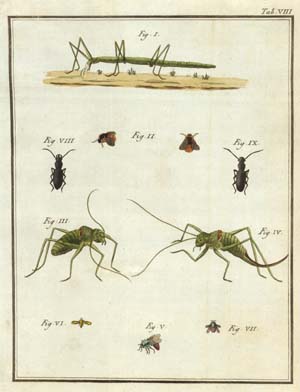Pietro Rossi (scientist) on:
[Wikipedia]
[Google]
[Amazon]
 Pietro Rossi (23 January 1738 in
Pietro Rossi (23 January 1738 in
BHL
Scan of ''Fauna Etrusca''
BHL
Scan of ''Mantissa insectorum''
1738 births 1804 deaths Scientists from the Grand Duchy of Tuscany Scientists from Florence Italian entomologists 18th-century Italian botanists Members of the Royal Swedish Academy of Sciences {{entomologist-stub
 Pietro Rossi (23 January 1738 in
Pietro Rossi (23 January 1738 in Florence
Florence ( ; ) is the capital city of the Italy, Italian region of Tuscany. It is also the most populated city in Tuscany, with 362,353 inhabitants, and 989,460 in Metropolitan City of Florence, its metropolitan province as of 2025.
Florence ...
– 21 December 1804 in Pisa
Pisa ( ; ) is a city and ''comune'' (municipality) in Tuscany, Central Italy, straddling the Arno just before it empties into the Ligurian Sea. It is the capital city of the Province of Pisa. Although Pisa is known worldwide for the Leaning Tow ...
) was an Italian
Italian(s) may refer to:
* Anything of, from, or related to the people of Italy over the centuries
** Italians, a Romance ethnic group related to or simply a citizen of the Italian Republic or Italian Kingdom
** Italian language, a Romance languag ...
scientist
A scientist is a person who Scientific method, researches to advance knowledge in an Branches of science, area of the natural sciences.
In classical antiquity, there was no real ancient analog of a modern scientist. Instead, philosophers engag ...
and entomologist
Entomology (from Ancient Greek ἔντομον (''éntomon''), meaning "insect", and -logy from λόγος (''lógos''), meaning "study") is the branch of zoology that focuses on insects. Those who study entomology are known as entomologists. In ...
.
Career
Rossi's academic career was conducted at theUniversity of Pisa
The University of Pisa (, UniPi) is a public university, public research university in Pisa, Italy. Founded in 1343, it is one of the oldest universities in Europe. Together with Scuola Normale Superiore di Pisa and Sant'Anna School of Advanced S ...
, where he attained a doctorate in philosophy
Philosophy ('love of wisdom' in Ancient Greek) is a systematic study of general and fundamental questions concerning topics like existence, reason, knowledge, Value (ethics and social sciences), value, mind, and language. It is a rational an ...
and medicine
Medicine is the science and Praxis (process), practice of caring for patients, managing the Medical diagnosis, diagnosis, prognosis, Preventive medicine, prevention, therapy, treatment, Palliative care, palliation of their injury or disease, ...
in 1759. He was then made a professor of logic
Logic is the study of correct reasoning. It includes both formal and informal logic. Formal logic is the study of deductively valid inferences or logical truths. It examines how conclusions follow from premises based on the structure o ...
in 1763, a position he held until 1801, when he finally received the chair for natural history
Natural history is a domain of inquiry involving organisms, including animals, fungi, and plants, in their natural environment, leaning more towards observational than experimental methods of study. A person who studies natural history is cal ...
with the special field "insectology", making him the world's first professor of entomology. His publications, particularly ''Fauna etrusca'' (1790) and ''Mantissa insectorum'' (1792), are considered pioneer achievements of entomology and still possess scientific validity in the fields of taxonomy
image:Hierarchical clustering diagram.png, 280px, Generalized scheme of taxonomy
Taxonomy is a practice and science concerned with classification or categorization. Typically, there are two parts to it: the development of an underlying scheme o ...
and biological nomenclature
Nomenclature codes or codes of nomenclature are the various rulebooks that govern the naming of living organisms. Standardizing the Binomial nomenclature, scientific names of biological organisms allows researchers to discuss findings (including ...
. Parts of his collection were once in the possession of Johann Christian Ludwig Hellwig
Johann Christian Ludwig Hellwig (8 November 1743, in Garz/Rügen – 10 October 1831, in Braunschweig) was a German mathematician, entomologist and wargaming, wargame designer. He was a professor of mathematics at the Collegium Carolinum in Brauns ...
in Braunschweig
Braunschweig () or Brunswick ( ; from Low German , local dialect: ) is a List of cities and towns in Germany, city in Lower Saxony, Germany, north of the Harz Mountains at the farthest navigable point of the river Oker, which connects it to the ...
; these are now in the Natural History Museum of Berlin. In 1793, he was elected a foreign member of the Royal Swedish Academy of Sciences
The Royal Swedish Academy of Sciences () is one of the Swedish Royal Academies, royal academies of Sweden. Founded on 2 June 1739, it is an independent, non-governmental scientific organization that takes special responsibility for promoting nat ...
. After his death, the ''Museo entomologico Pietro Rossi'' was integrated into the Museo Civico di Storia Naturale de Milan
The Museo Civico di Storia Naturale di Milano (Milan Natural History Museum) is a museum in Milan, Italy. It was founded in 1838 when the naturalist Giuseppe de Cristoforis donated his collections to the city. Its first director was the taxon ...
in Milan
Milan ( , , ; ) is a city in northern Italy, regional capital of Lombardy, the largest city in Italy by urban area and the List of cities in Italy, second-most-populous city proper in Italy after Rome. The city proper has a population of nea ...
.
References
* R. Poggi/B. Baccetti: ''Pietro Rossi, naturalista toscano del '1700''. In: ''Accademici e qualche precursore, UN sguardo retrospettivo sull'entomologia italiana. Accademia Nazionale Italiana di Entomologia, Celebrazioni by i 50 anni di attività'', Florenz 2001, p. 7-38External links
BHL
Scan of ''Fauna Etrusca''
BHL
Scan of ''Mantissa insectorum''
1738 births 1804 deaths Scientists from the Grand Duchy of Tuscany Scientists from Florence Italian entomologists 18th-century Italian botanists Members of the Royal Swedish Academy of Sciences {{entomologist-stub